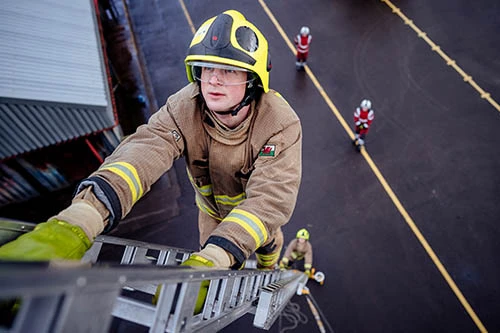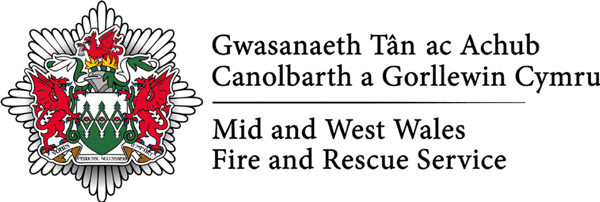The information below has been developed for people with sight, hearing and mobility difficulties and those who care for them. It provides practical advice and tips that will help protect you from the risk of fire.
- If you have a hearing difficulty you can get a smoke alarm which uses a strobe light and vibrating pads.
- In the event of a fire, if it is difficult for you to call 999 yourself, ask a neighbour to do it for you.
- If you have specialist equipment, such as a text phone or minicom, you can contact the emergency services on 18000
- Put a coloured sticker on your smoke alarm if you have trouble seeing it to test it, or ask your local Fire Service if they can provide one for you.
- Check electrical leads regularly by touch. If they are frayed or faulty don't plug them in or switch them on. If electrics are giving off a burning smell turn them off and unplug them immediately.
- If it is difficult to test your alarm ask somebody to do it for you.
- If you have trouble moving around, consider fitting an intercom which will allow you to alert someone else in the house in the event of an emergency.
- Make sure you have easy access to any mobility aids you may need, such as a walking stick.
Anosmia is the loss of the sense of smell and can affect people temporarily or it can be a permanent condition.
People living with anosmia can have issues cooking as they can experience difficulties identifying whether food is burning.
They will also struggle to identify gas leaks or a fire within their home.
It is vitally important that people living with anosmia have working smoke alarms within their home to give the earliest warning of a fire.
One of the symptoms of the Covid-19 virus is the loss of taste and smell so this will be affecting a larger proportion of the public at the moment.


Access to 999 for deaf, hard of hearing and speech Impaired People
There are hundreds of thousands of deaf, hard of hearing and speech-impaired people in the UK who have a hearing or speech loss that prevents them from using voice telephony to contact the emergency services.
Text Relay is a service provided by BT that enables deaf, deaf-blind, hard of hearing and speech-impaired people who use textphones to make and receive calls to and from hearing people. Text Relay is funded by the UK Communications Providers with the Royal National Institute for Deaf People (RNID) managing the relay assistants who provide the voice to text translation.
A textphone or TalkByText user can contact the emergency services by dialling '18000'. This call will be connected to the 999 services and translated by a Text Relay Assistant. Visit the Text Relay website (opens in a new window/tab) or more information on textphones and the text relay service.
Next Generation Text Service (NGT) emergencySMS Service
In an emergency situation, you need help fast.
The Next Generation Text Service lets deaf, hard of hearing, or speech-impaired people in the UK alert police, ambulance, fire, or coastguard services by either calling via a relay assistant or texting a message to 999 using our emergencySMS service, an add-on to the existing 18000 service that is available in the UK.
Visit the Next Generation Text Service emergencySMS website (opens in a new window/tab) for more information and how to set up your mobile now.

